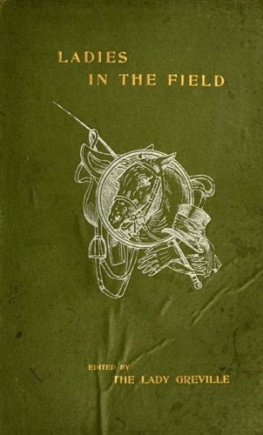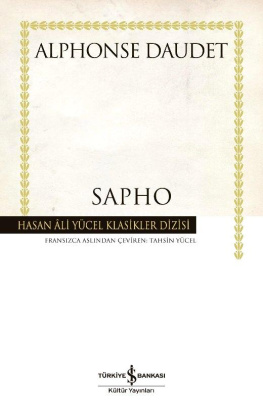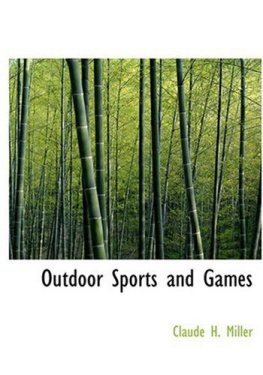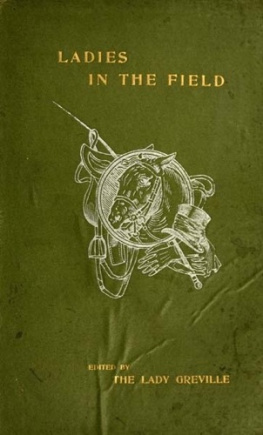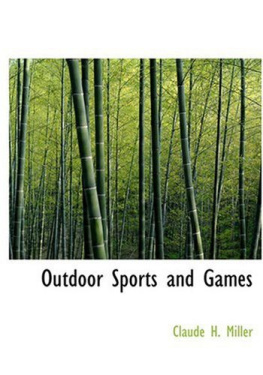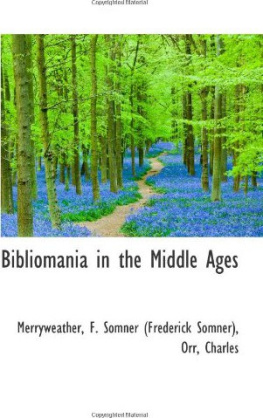LADIES IN THE FIELD

EDITED BY
THE LADY GREVILLE
NEW YORK
D. APPLETON AND COMPANY
1894
PREFACE.
It is scarcely necessary nowadays to offer an apology for sport, with its entrancing excitement, its infinite variety of joys and interests. Women cheerfully share with men, hardships, toil and endurance, climb mountains, sail on the seas, face wind and rain and the chill gusts of winter, as unconcernedly as they once followed their quiet occupations by their firesides. The feverish life of cities too, with its enervating pleasures, is forgotten and neglected for the witchery of legitimate sport, which need not be slaughter or cruelty. Women who prefer exercise and liberty, who revel in the cool sea breeze, and love to feel the fresh mountain air fanning their cheeks, who are afraid neither of a little fatigue nor of a little exertion, are the better, the truer, and the healthier, and can yet remain essentially feminine in their thoughts and manners. They may even by their presence refine the coarser ways of men, and contribute to the gradual disuse of bad language in the hunting field, and to the adoption of a habit of courtesy and kindness. The duties of the wife of the M. F. H. fully bear out this view.
When women prove bright and cheerful companions, they add to the man's enjoyment and to the enlarging of their own practical interests. When, in addition, they endeavour to love Nature in her serenest and grandest moods, to snatch from her mighty bosom some secrets of her being, to study sympathetically the habits of birds, beasts and flowers, and to practise patience, skill, ingenuity and self-reliance, they have learnt valuable lessons of life.
Lastly, in the words of a true lover of art: "The sportsman who walked through the turnip fields, thinking of nothing but his dog and his gun, has been drinking in the love of beauty at every pore of his invigorated frame, as, from each new tint of autumn, from every misty September morning, from each variety of fleeting cloud, each flash of light from distant spire or stream, the unnoticed influence stole over him like a breeze, bringing health from pleasant places, and made him capable of clearer thoughts and happier emotions."
Violet Greville.
CONTENTS.
| PAGE |
| Riding in Ireland and India. |
| By the Lady Greville. |
| Hunting in the Shires. |
| Horses and Their Riders. |
| By The Duchess of Newcastle. |
| The Wife of the M. F. H. |
| By Mrs Chaworth Musters. |
| Fox-Hunting. |
| Team and Tandem Driving. |
| By Miss Rosie Anstruther Thomson. |
| Tigers I have Shot. |
| By Mrs C. Martelli. |
| Rifle-Shooting. |
| By Miss Leale. |
| Deer-Stalking and Deer-Driving. |
| By Diane Chasseresse. |
| Covert Shooting. |
| By Lady Boynton. |
| A Kangaroo Hunt. |
| By Mrs Jenkins. |
| Cycling. |
| By Mrs E. R. Pennell. |
| Punting. |
| By Miss Sybil Salaman. |
LADIES IN THE FIELD.
RIDING IN IRELAND AND INDIA.
By the Lady Greville.
Of all the exercises indulged in by men and women, riding is perhaps the most productive of harmless pleasure. The healthful, exhilarating feeling caused by rapid motion through the air, and the sense of power conveyed by the easy gallop of a good horse, tends greatly to moral and physical well-being and satisfaction. Riding improves the temper, the spirits and the appetite; black shadows and morbid fancies disappear from the mental horizon, and wretched indeed must he be who can preserve a gloomy or discontented frame of mind during a fine run in a grass country, or even in a sharp, brisk gallop over turfy downs. Such being the case, no wonder that the numbers of horsemen increase every day, and that the hunting field, from the select company of a few country squires and hard-riding young men, has developed into an unruly mob of people, who ride over the hounds, crush together in the gateways, and follow like a flock of sheep through the gaps and over the fences, negotiated by more skilful or courageous sportsmen. Women, too, have rushed in where their mothers feared to tread. Little girls on ponies may be seen holding their own nobly out hunting, while Hyde Park, during the season, is filled with fair, fresh-looking girls in straw hats, covert coats and shirts, driving away the cobwebs of dissipation and the deleterious effects of hot rooms by a mild canter in the early morning. Unfortunately, though a woman never looks better than on horseback, when she knows how to ride, the specimens one often encounters riding crookedly, all one side, to the inevitable detriment of the horse's back, bumping on the saddle like a sack of potatoes, or holding on with convulsive effort to the horse's mouth, are sufficient to create a holy horror in the minds of reasonable spectators. Park-riding is not difficult compared with cross-country riding, yet how seldom do you see it perfect? To begin with, a certain amount of horsemanship is absolutely necessary. There must be art, and the grace that conceals art; there must be self-possession, quiet, and a thorough knowledge of the horse you are riding. Take, for instance, a fresh young hunter into the park for the first time. He shies at the homely perambulator, starts at the sound of cantering hoofs, is terrified by a water-cart, maddened by the strains of the regimental band, or the firing of the guards at their matutinal drill, and finally attempts to bolt or turn round as other horses, careering along, meet and pass him in a straggling gallop. If he backs, rears, kicks, shies and stops short, or wheels round suddenly, with ears thrown back, his rider need not be surprised. Horses cantering in every direction disturb, distress and puzzle him. On which side are the hounds? he wonders. Why does not his rider extend him? Where are the fences, and when will the fun begin? These, no doubt, are some of the thoughts that pass through a well-bred hunter's mind, for that horses do reason in their own peculiar fashion I am convinced, and that they fully recognise the touch and voice of the master, no one can doubt who has noticed the difference in the behaviour of a hunter when ridden by different persons. If the park rider wishes for a pleasant conveyance I should strongly recommend a hack, neither a polo pony nor a cob. But where, oh where, are perfect hacks to be found? They should be handsome, well-bred, not quite thorough-bred, about 153, with fine shoulders, good action, and, above all, perfect mouth and manners. No Irish horse has manners, as a rule, until he comes to England, or has the slightest idea of bending and holding himself, owing to the fact of his being usually broken and ridden in a snaffle bridle. This practice has its uses, notably in that it makes the horses bold fencers, and teaches them not to be afraid of facing the bit, but it is not conducive to the development of a park hack, which should be able to canter round a sixpence. I remember in my young days seeing Mr Mackenzie Greaves and Lord Cardigan riding in the park, the latter mounted on a beautiful chestnut horse, which cantered at the slowest and easiest of paces, the real proverbial arm-chair, with a beautifully arched neck, champing proudly at the bit, yet really guided as by a silken thread.

